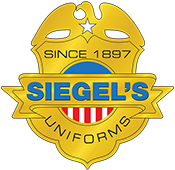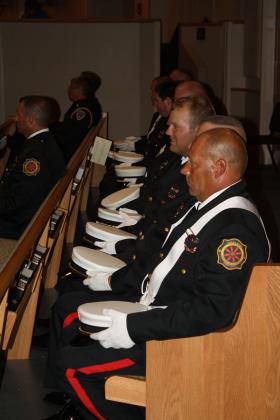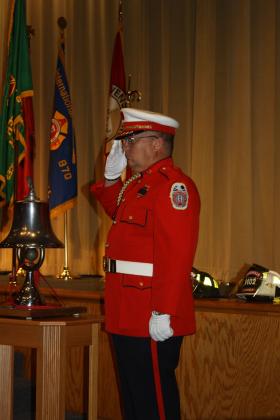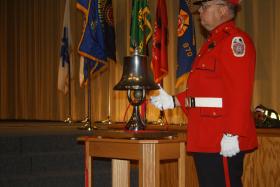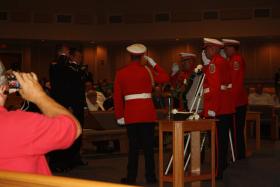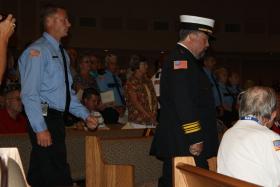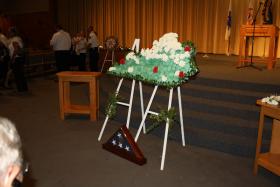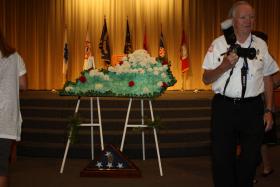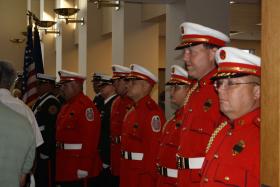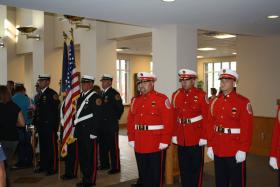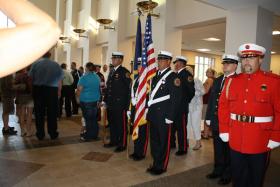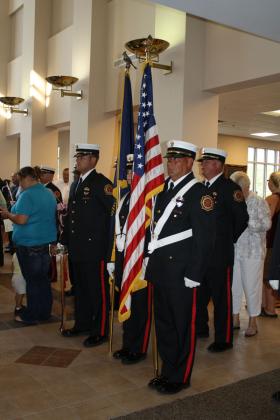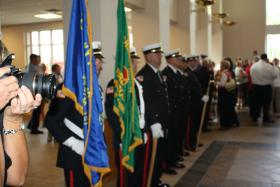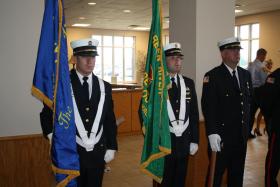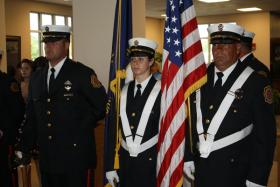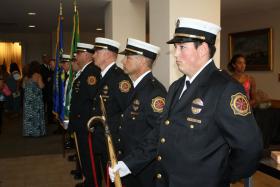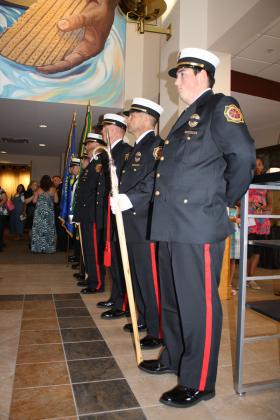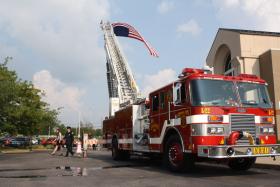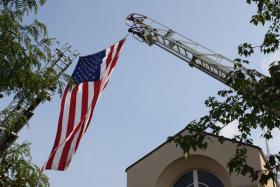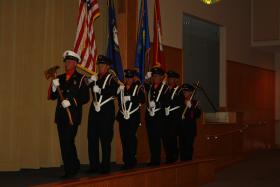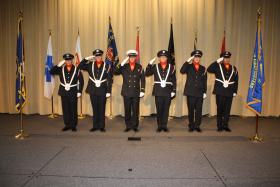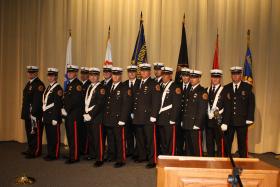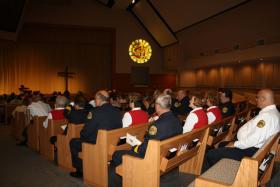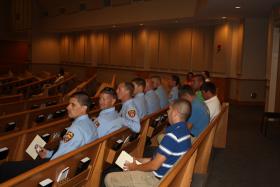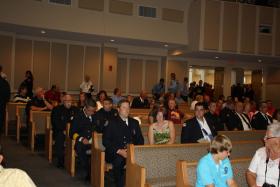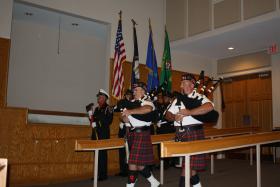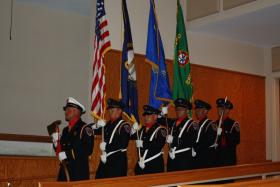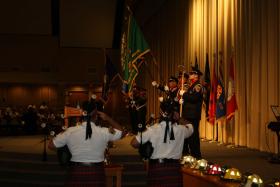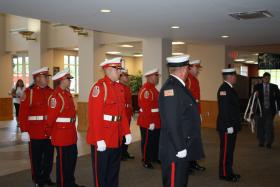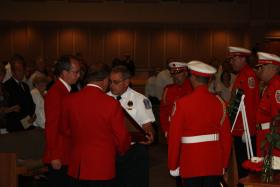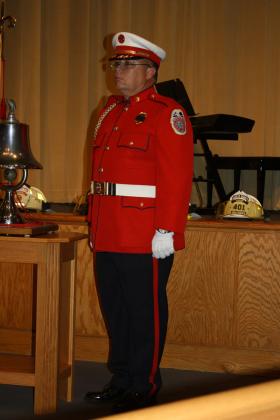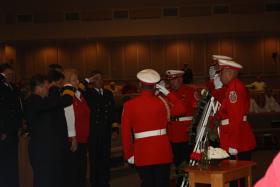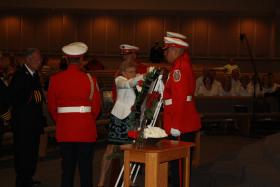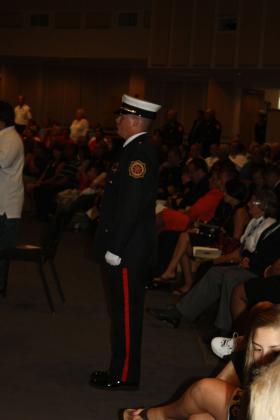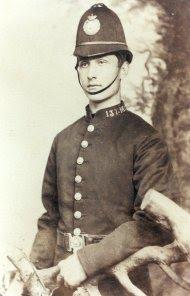 Police in England during the 19th Century first realized the necessity and added benefits of using uniforms while on duty. Uniforms obviously increased visibility and they added credibility to the perception of Law Enforcement by the general public. Uniforms were also used to further emphasize the divide between the military and local police officers. Initially, police uniforms identified the police as separate from the military but appeared to serve a number of other purposes after implementation. The high profile visibility of the Uniformed Police Officer also deterred criminal activity in and of itself, because lawbreakers would curtail their criminal conduct in the presence of an officer and a citizen in trouble could, without any doubt, spot an officer in a multitude of people, and increased the perception of professionalism and trust between the police and civilian population.
Police in England during the 19th Century first realized the necessity and added benefits of using uniforms while on duty. Uniforms obviously increased visibility and they added credibility to the perception of Law Enforcement by the general public. Uniforms were also used to further emphasize the divide between the military and local police officers. Initially, police uniforms identified the police as separate from the military but appeared to serve a number of other purposes after implementation. The high profile visibility of the Uniformed Police Officer also deterred criminal activity in and of itself, because lawbreakers would curtail their criminal conduct in the presence of an officer and a citizen in trouble could, without any doubt, spot an officer in a multitude of people, and increased the perception of professionalism and trust between the police and civilian population.
Category: Culture
Women in Law Enforcement
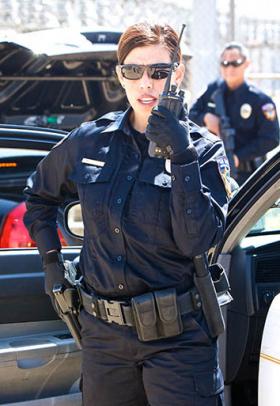 Women in Law Enforcement used to not only be a rarity, but before a group of women in New York City sued for the right to become police officers, it was all but prohibited for a woman to become a cop. Things have changed tremendously over the years regarding the attitudes about women in Law Enforcement. Not only are women allowed to be Police Officers, but Law Enforcement agencies are actively seeking to hire females to benefit the force overall and the United States government, as well as other institutions, offers scholarships and grants especially for females looking to enter the field.
Women in Law Enforcement used to not only be a rarity, but before a group of women in New York City sued for the right to become police officers, it was all but prohibited for a woman to become a cop. Things have changed tremendously over the years regarding the attitudes about women in Law Enforcement. Not only are women allowed to be Police Officers, but Law Enforcement agencies are actively seeking to hire females to benefit the force overall and the United States government, as well as other institutions, offers scholarships and grants especially for females looking to enter the field.
History of EMT’s (Emergency Medical Technicians)
The modern EMT program in the United States began as part of the “Alexandria Plan” in the early 70’s. Emergency medicine (EM) as a medical specialty is a very new idea. It wasn’t until the 1960s and 70s, hospital emergency departments were generally staffed by physicians on staff at the hospital on a rotating basis, among them general surgeons, internists, psychiatrists, and various other types of specialty doctors. What the system lacked was specialized triage type care from the moment the victim is engaged. There was no system to manage Pre-Emergency care. EMS and EMT’s as a specialty occurred as it became increasingly proven that time is the most important factor in a good result after an emergency. Physicians in training (interns and residents), medical graduates from other countries and sometimes nurses also staffed the Emergency Department but the systematic evaluation of the modern Emergency Room and Pre-Emergency room care is a more modern phenomenon.
Continue reading History of EMT’s (Emergency Medical Technicians)
Honor Guards in the United States
An honor guard, or ceremonial guard, is a special unit, Police, Fire departments, and EMS in nature and composed of volunteers who are carefully screened for their exceptional strength and skillfulness, as well as their incomparable performance on duty. Only the most exceptional representatives who are highly motivated and maintain superbly high standards of appearance and behavior and show talent for ceremonial duty are likely to be honored with the duties of their particular honor guard. Special Honor guard uniforms are designated for the men and women chosen for this special duty. Each branch of uniformed occupation has a special unit, Police, Fire departments, and EMS departments have their own Honor Guard uniform.
The Civil Servant’s Honor Guard
“No person was ever honored for what he received. Honor has been the reward for what he gave.” Calvin Coolidge
- Every 57 hours a Law Enforcement Officer is killed in the line of duty.
- Each year in the United States, approximately 100 firefighters are killed while on duty and tens of thousands are injured
- On average 150 Law Enforcement Officers are killed each year.
Honoring Local Heroes
The Guard’s Motto
“Hero’s are not dead until they are forgotten. The Honor Guard never forgets!”
The Guard’s Creed
….I will perform in humble reverence to the best of my capacity. It is those who have paid the ultimate sacrifice that commands the respect I protect, and it is their bravery that made us so proud.
In general, Honor Guards are associated with the military, but local heroes are served by Honor Guards around the country as these brave civil servants put their lives on the line. Most Honor Guard members have attended formal training at Fire Colleges and/or are EMS trained guards. They also represent their factions as they march in the local community celebration parades, attended new station grand openings (ring in-service), and participated in award ceremonies, as well as various other social functions and duties.
Although they may represent different groups, EMT’s, Firefighters, and etc, all honor guards have the same mission; to strive to honor firefighters, and others who give their lives in service to others in life, as well as death, and to exhibit the best possible image to the entire community. They accomplish this with the highest degree of professionalism, dedication, loyalty, honor and dignity possible. Their purpose is to represent these local heroes by projecting a positive image, and performing as a well-trained team at events and formal occasions as appropriate. In addition to funerals and memorial services, the honor guard may be called on to post colors, march in parades, attend new station grand openings, social functions, and assist the families of our fallen brothers and sisters during their time of need.
Usually, an Honor Guard is available to assist and/or work in conjunction with other honor guards for “Line of Duty” funerals and memorial services for all Fire, EMS and Police personnel as requested. All members of any honor guard must learn Military Drill and Ceremonies and perform to satisfaction of the group before they may perform with the group and obtain his/her uniform that properly represents the group they are honoring. Honor Guards perform at many various occasions and perform more functions than the most revered, to include Remembrance Ceremonies, but in addition they perform at EMS conferences and official conventions, flag dedication services, and various types of graduations. Honor Guards function as important branches of our most heroic of civil servants such as Fire Fighters Honor Guard, EMS Honor Guard, Color Guard, Funeral Detail, Bearer Party, and Guard of the Vigil. Their attendance and contributions to these special events are invaluable. They represent and honor the best of the best of human nature and each faction, although less formal than the military, deserves all the honors and remembrances bestowed on them by these special teams.
The “Colors” of Honor – Part II: The Time Honored Legacy
The Color Guard, especially in Law Enforcement, carries on a long tradition of handling the ultimate signal of patriotism, the flag. Color Guard presents the colors at special events such as, Fourth of July Parade, Swearing-In Ceremonies, and Funerals There are many traditions and rules of procedure to adhere to when “Posting the Colors,” or presenting the flag(s). The presentation demands respect at such formal events. The Flag Code, which formalizes and unifies the traditional ways in which we give respect to the flag, also contains specific instructions on how the flag is not to be used. The Color Guard observes all of the formal traditions around handling ‘the Colors’ especially handling the American Flag: Continue reading The “Colors” of Honor – Part II: The Time Honored Legacy
The ‘Colors’ of Honor
Honor Guard
Police and Law Enforcement Honor Guards perform many duties and perform specific functions. The Honor Guard of any branch, Law Enforcement, Firefighters, Military, or EMT’s etc, are carefully selected and considered some of the best achievers in their field. Trained police and firefighters perform in military-style honors for those slain in the line of duty and those who have retired, as well as other ceremonial functions. The rules of the National Fraternal Order of Police, in their manual outlining the guidelines addressing the National Honor Guard Demonstration in Washington, D. C., notes that the Color Guard is a member of the Honor Guard, but they perform a specific duty. Continue reading The ‘Colors’ of Honor
Kentucky Firefighter’s Association Firefighter Memorial Service 2011
Firefighter Memorial Service during the Kentucky Firefighter’s Association Annual Conference in Owensboro, KY, July 31, 2011.
Continue reading Kentucky Firefighter’s Association Firefighter Memorial Service 2011
Women as EMT’s and Paramedics
The recent economic downturn and increased unemployment has forced many people to look ‘out of the box’ for employment, especially for women. The typical standby restaurant and retail jobs, as well as others, have greatly diminished and affected workers have begun to assess where the next generation of secure employment will lie. The healthcare industry has become the emerging field of secure employment. The realization of increased diversity in the healthcare industry has opened new doors for females, especially in the Paramedic and EMT professionals. Continue reading Women as EMT’s and Paramedics
